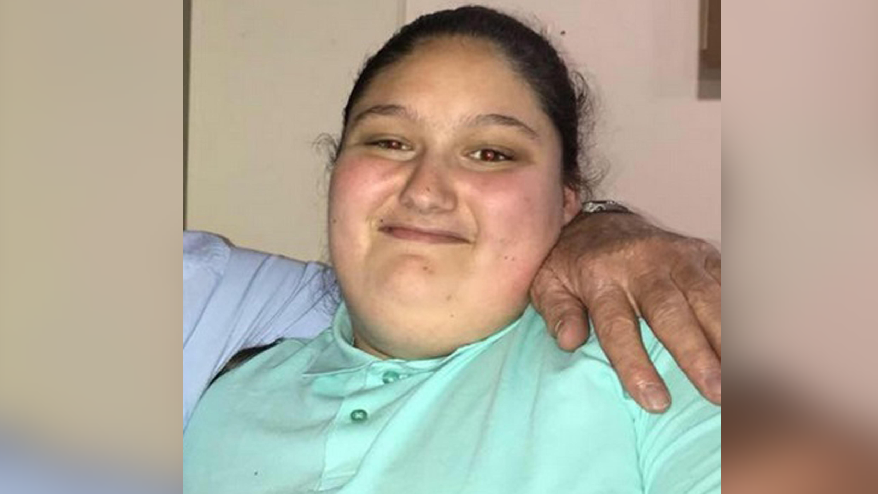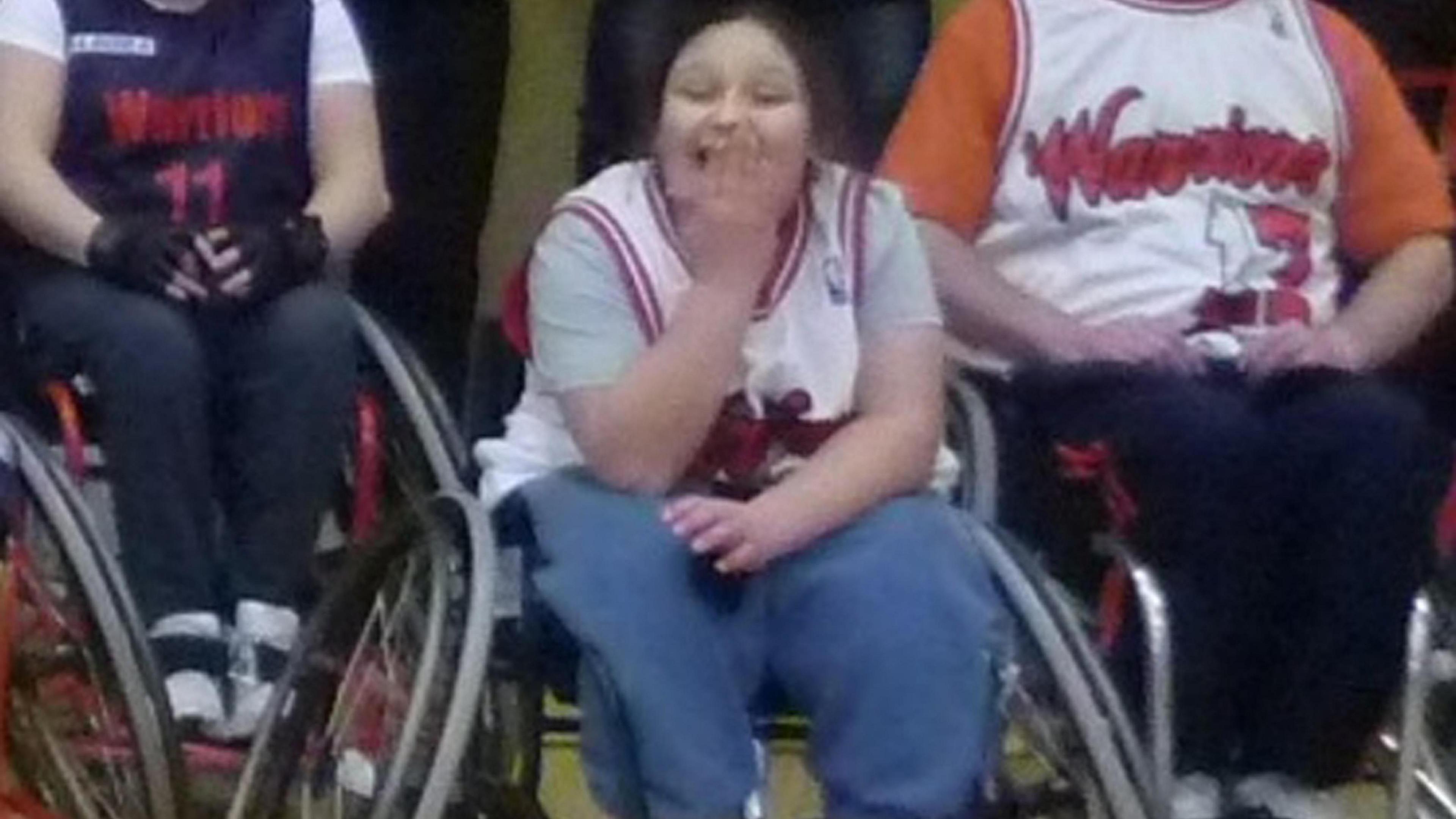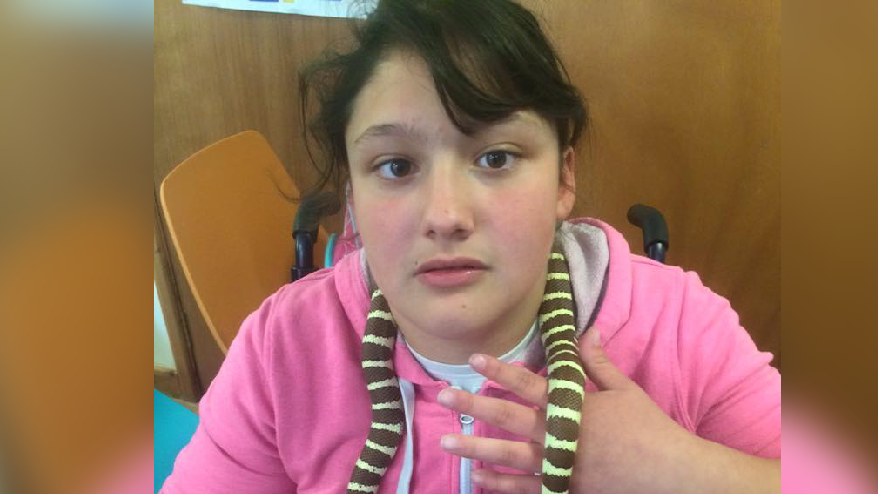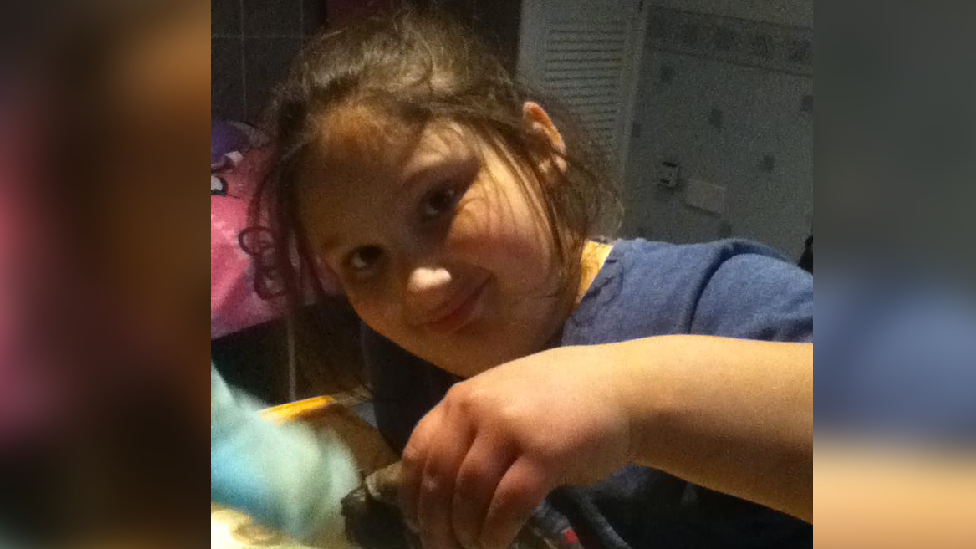No care plan for teen who died of 'shocking neglect'

Kaylea Titford was described as a "wonderful, determined, fun and headstrong" girl
- Published
A disabled teenager who died following "shocking neglect" did not have a care plan, a review has found.
Kaylea Titford, 16, died in squalid conditions described as "unfit for any animal" at home in Powys in October 2020.
The review found that despite many professionals being involved in her life, care was not coordinated by a single person or organisation.
The local safeguarding board said it will ensure services improve.
Kaylea had spina bifida and used a wheelchair. She was morbidly obese at the time of her death and weighed 23 stone (146kg).
Her parents, Alun Titford and Sarah Lloyd-Jones, were sentenced to 10 years and eight years respectively for manslaughter by gross negligence.
A report into Kaylea’s death, called a child practice review, external, was commissioned by the Mid and West Wales Regional Safeguarding Board (CYSUR).
It described her as “a tenacious child [who] faced the world amidst compounding health and social inequalities”.
As a child with a disability, Kaylea should have been assessed for a care and support plan and without a plan, her needs and those of her parents as carers were “not visible” to Powys council, the report said.
It said the distressing nature of Kaylea’s avoidable suffering and subsequent death was an “inescapable truth” and that the condition of her body was a source of anguish and indicative of chronic neglect.
There were also significant concerns about the unhygienic and unkempt condition she lived in and a “sense of shock, distress and anger” regarding what Kaylea must have endured in the months before her death.

The report said Kaylea loved being active and could have been a future Paralympian
At the beginning of 2019, Kaylea had 98% school attendance, but during that year, her health problems escalated.
Her parents raised concerns and took her to medical appointments - although her attendance at these was "inconsistent", the report said.
She had cellulitis and lymphodema - a chronic condition which causes swelling.
By November 2019, her school attendance had dropped to 70%.
Her parents met school staff and explained her health problems and also said Kaylea had been bullied in school.
Kaylea received informal counselling and her attendance improved to 82%.
Then the pandemic began and as a vulnerable child, Kaylea had to shield.
The report said there was no assessment of the likelihood that she could suffer significant harm during the pandemic.
It said she was socially isolated for six months.
“The evidence of the way she died permits us to conclude the contributory impact of extended quarantine was multiple and complex, exacerbating her vulnerabilities and reducing the supportive infrastructure upon which she relied,” the review said.

School was Kaylea Titford's 'happy place' the report said
The school spoke to Kaylea's family weekly throughout April and July 2020 and had daily contact with her mother from 3 September until 9 October 2020 - the day before Kaylea died.
The school has since strengthened guidance on what to do when a child is not seen.
The report said that despite regular discussions about her weight by health professionals, little consideration was given to when it should be escalated to a child protection matter.
There was no recordings or reference to Kaylea’s weight in 2019 or 2020.
The review also said Kaylea should have received transition planning for services as she reached adolescence.
It said her needs could have been predicted but the overarching coordination of services was "not consistently available".
Kaylea had been discharged from Powys council's Integrated Disability Service in 2017.
“A child with significant and chronic disabilities such as spina bifida should not be discharged from services if that limits the support they receive from paediatric to adult care," the report said.
It added that if a care and support plan was in place they could have supported her and her parents in planning for adult services.
The report's author Dr Donna Peach added that "things which should have been done weren't followed through".

The child practice review into Kaylea Titford's death makes nine recommendations for the council and the health board.
"Simple things like checking her weight and her skin - that support and coordination was required," she added, emphasising that Kaylea's needs "could have been predicted".
Rocio Cifuentes, children's commissioner for Wales, said the report was clear Kaylea was let down and that her "indescribable suffering was avoidable".
"There was no effective oversight of Kaylea's care and support needs, significant deficiencies in co-ordination between agencies, and a disjointed approach across health services to responding to missed appointments."
The review recommended that councils ensure care and support assessments were consistently offered and that the local authority and health board review the systems in place for children with chronic disabilities.
CYSUR said it will oversee an action plan and is committed to ensuring lessons continue to be learnt and services improve.
A joint statement from Powys council, Powys Teaching Health Board and Dyfed-Powys Police said that the review was an opportunity to reflect and share learning.
It added: “We hope that the report will contribute to wider ongoing learning in relation to a number of key issues identified in the report so that children and their families are supported fully.”